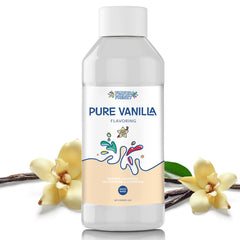Your Cart is Empty
Discover the Potential of L-Tyrosine: Key Insights into Its Cognitive and Health Benefits

L-tyrosine is a crucial aromatic amino acid that plays a pivotal role in both protein synthesis and the production of critical neurotransmitters like dopamine, norepinephrine, and epinephrine.
Derived from phenylalanine, it is integral to various physiological processes, particularly in enhancing cognitive functions under stressful conditions.
L-tyrosine supplementation has been found to counteract decrements in working memory and information processing induced by demanding situational conditions. Recent studies indicate that supplemented L-Tyrosine can improve working memory by 13-15% during mentally demanding tasks. Additionally, it helps maintain mental capacity and performance during stressful activities.
Its biosynthetic pathway, involving the enzyme tyrosine hydroxylase, is tightly regulated and sensitive to local substrate concentrations. Understanding the natural function and practical applications of L-Tyrosine can reveal its potential benefits and uses.
L-tyrosine is not only essential for neurotransmitter production but also plays a role in thyroid hormone synthesis and melanin production.
Its supplementation is increasingly recognized as a valuable tool for mental performance and stress management.
Want to purchase l-tyrosine – Get your custom quote today!
Discover also our products:
Natural Function and Biosynthesis
L-tyrosine is an aromatic amino acid crucial for protein synthesis in all organisms, although its de novo synthesis is limited to plants and microorganisms.
- In Plants: It serves as a precursor for various specialized metabolites, such as vitamins, antioxidants, and defense compounds.
- Synthesis Pathway: L-tyrosine is synthesized from chorismate via the shikimate pathway, involving key enzymes like arogenate dehydrogenase.
- Biosynthetic Role: This amino acid is a critical component in the biosynthesis of neurotransmitters, including dopamine, norepinephrine (noradrenaline), and epinephrine (adrenaline) in animals and humans.
- Health Importance: Recent studies highlight the importance of tyrosine in enhancing leucine-induced muscle protein synthesis and myotube hypertrophy, suggesting its role in muscle anabolic response.
- Non-essential for Humans: Unlike some amino acids, tyrosine can be synthesized from phenylalanine in the human body, making it non-essential for dietary intake.
- Industrial Use: Advances in genetic engineering have led to the industrial production of L-tyrosine using engineered strains of E. coli.
Medical and Dietary Uses
Tyrosine plays a critical role in the body beyond its biosynthetic functions, particularly in its medical and dietary applications. It is essential for individuals with phenylketonuria (PKU), as they require tyrosine supplements to maintain adequate levels due to their inability to convert phenylalanine into tyrosine.
Tyrosine also supports brain function, aiding in the production of neurotransmitters like dopamine, and is found in various protein-rich foods such as dairy, meats, fish, eggs, nuts, beans, oats, and wheat.
Tyrosine supplements have been explored for their potential to improve cognitive performance under stress and during sleep deprivation, with some studies suggesting benefits in these areas. However, more research is needed to confirm these findings.
In dietary applications, tyrosine is crucial for maintaining proper body function, and adults should consume tyrosine and phenylalanine combined in an amount equal to 14 milligrams per kilogram of body weight per day.
A well-balanced diet typically provides sufficient tyrosine, making supplementation unnecessary for most individuals.
For those who do require supplements, it is important to follow healthcare provider instructions and dosage recommendations carefully to avoid adverse effects.
Effects on Cognitive Performance
Numerous studies have investigated the impact of tyrosine on cognitive performance, particularly under conditions of physical and mental stress. Tyrosine supplementation has been shown to counteract cognitive decrements induced by stressors such as sleep deprivation, extreme weather, and cognitive load. It enhances working memory and executive functions by replenishing depleted catecholamine levels, especially norepinephrine and dopamine.
Research indicates that tyrosine has beneficial effects on cognitive performance in situations of high environmental demands, suggesting a potential role in mitigating stress-induced cognitive decrements.
In line with this, studies have demonstrated that tyrosine supplementation can effectively improve cognitive performance in a variety of stressful situations, such as extreme climate conditions and sleep deprivation.
Moreover, tyrosine has been found to enhance performance in tasks requiring high cognitive load, indicating its potential to support cognitive demands under stress.
Given these findings, tyrosine supplementation appears to be a promising strategy for enhancing cognitive resilience under conditions of stress and high environmental demands.
Historical Background and Discovery
The discovery of tyrosine can be traced back to 1846 when German chemist Justus von Liebig isolated it from the protein casein found in cheese. This amino acid was initially identified in its protein-bound form and later recognized as a key component in various biochemical pathways.
Tyrosine plays a crucial role in protein synthesis and neurotransmitter production, aspects that were extensively explored in the late 19th and 20th centuries. The significance of tyrosine extends to its participation in photosynthesis as an electron donor in chloroplasts and its involvement in the synthesis of neurotransmitters such as dopamine and norepinephrine through its conversion to L-DOPA.
Today, tyrosine is known to be a precursor to neurotransmitters and increases plasma neurotransmitter levels, particularly under conditions of stress and fatigue. The continued research on tyrosine highlights its importance in both biological processes and medical applications.
Bulk and Wholesale Purchase Options
When evaluating bulk and wholesale purchase options for L-tyrosine, it's crucial to assess the quality, purity, and reliability of the supplier. Suppliers offer various packaging sizes and subscription options to cater to different needs.
- Bulk Supplements provides a range of sizes starting from 250g (8.8 oz), with options for gluten-free products and subscription services that can offer up to 10% off on regular deliveries.
- PureBulk offers bulk quantities up to 25kg, along with different pricing tiers to accommodate various budgets.
- Alibaba offers free samples, with minimum orders starting at 1 kilogram and prices ranging from $10.00 to $30.00 per kilogram.
In the wholesale market, prices for L-tyrosine powder can vary significantly, from $10.00 to $30.00 per kilogram, depending on the supplier and quality. Ensuring the purity and quality of the product is essential for its intended use.
Given the variety of options, choosing a supplier that offers reliable shipping and customer support is key to a successful bulk purchase.
Commonly Asked Questions:
How does L-Tyrosine support brain function?
L-tyrosine supports brain function by serving as a precursor to neurotransmitters like dopamine, norepinephrine, and epinephrine, which are essential for cognitive performance and stress response.
What is the role of tyrosine hydroxylase in neurotransmitter synthesis?
Tyrosine hydroxylase is the rate-limiting enzyme in catecholamine biosynthesis, converting tyrosine into DOPA, which is then further processed into dopamine, norepinephrine, and epinephrine.
How does dietary intake affect tyrosine levels and neurotransmitter synthesis?
Increasing protein intake, either acutely or chronically, can raise brain tyrosine levels and stimulate catecholamine synthesis. This effect is particularly significant in actively firing neurons.
Does L-tyrosine supplementation have any cognitive benefits?
Research suggests that tyrosine loading can counteract decrements in working memory and information processing induced by demanding situational conditions.
What are the methods of industrial L-tyrosine synthesis?
L-tyrosine is produced industrially using engineered strains of E. coli, replacing traditional methods of extraction from protein hydrolysates and enzymatic synthesis from phenolics.
Data and Statistics:
|
Use |
Description |
|
Protein Synthesis |
Essential amino acid for protein synthesis. |
|
Neurotransmitter Synthesis |
Precursor to dopamine, norepinephrine, and epinephrine. |
|
Brain Function |
Crucial for maintaining cognitive performance under stress. |
|
Industrial Synthesis |
Produced using engineered E. coli strains. |
Want to purchase l-tyrosine – Get your custom quote today!





